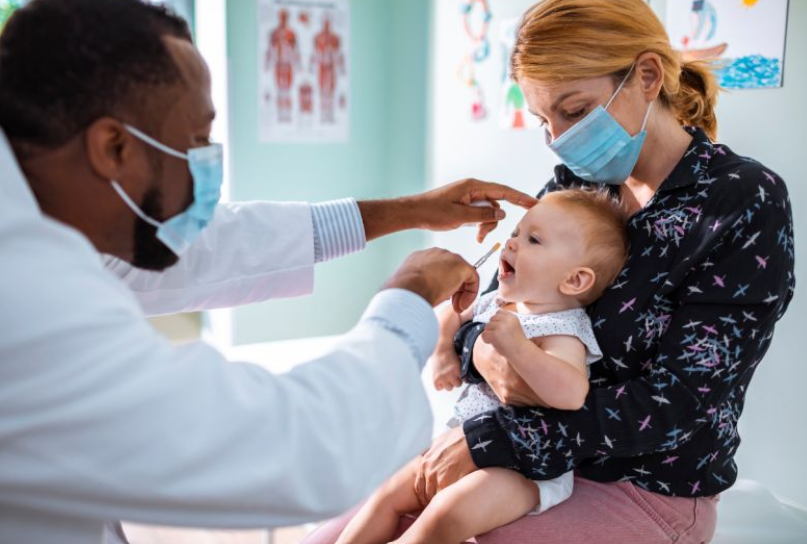
Fact checked by Ros Lederman
The United States is grappling with a significant measles outbreak, with 607 confirmed cases across 21 states as of April 3, 2025. The surge has resulted in three known deaths as of April 6. At the outbreak’s epicenter in northwest Texas, cases have been rising since late January. Health officials warn the outbreak could persist for up to a year, with most infections occurring among unvaccinated children. [ Chicago Health]
According to the Centers for Disease Control and Prevention (CDC), measles cases in the first three months of 2025 more than doubled the total recorded in 2024 — 285. Public health officials emphasize that the measles, mumps, and rubella (MMR) vaccine remains the most effective tool for preventing the disease. Yet declining vaccination rates, fueled by misinformation, continue to leave communities vulnerable.
“Across the United States, there has been a decrease in overall vaccine rates since around 2020,” says Brian Borah, MD, medical director of vaccine preventable disease surveillance for the Chicago Department of Public Health. He attributes this to public fatigue surrounding the Covid-19 pandemic and the spread of misinformation and disinformation, which have become more mainstream.
Robert Murphy, MD, an infectious disease specialist and professor of medicine at Northwestern University, stressed how easily measles spreads and why even vaccinated individuals remain at some risk when herd immunity breaks down. “The vaccine works 97% if you take the two doses. So 3% are at risk who had the vaccine, and 100% of the people are at risk who didn’t take the vaccine,” Murphy says. “It’s so highly contagious. It’s even more contagious than Covid and avian flu.”
Texas has seen the highest number of cases, with one of the largest clusters occurring among Mennonite communities in Gaines County.
Chicago health officials remain on high alert, though as of early April, no cases have been reported in the city. Local health departments are urging residents to ensure their vaccinations are up to date, and are expanding efforts to reach communities with lower immunization rates.
“Chicago being a big hub of travel, with our airports, we are always at risk for pathogens coming into our community,” says Taylor Heald-Sargent, MD, PhD, infectious disease physician at Ann & Robert H. Lurie Children’s Hospital of Chicago.
The consequences of measles can be severe, particularly for children. “One in 20 children can develop pneumonia, and 1 out of 1,000 can experience brain infection” she says.
Murphy echoes these concerns, emphasizing that despite claims from vaccine skeptics, good nutrition alone cannot prevent the disease. “Healthy people get measles encephalitis and die,” he says.
More>
###
